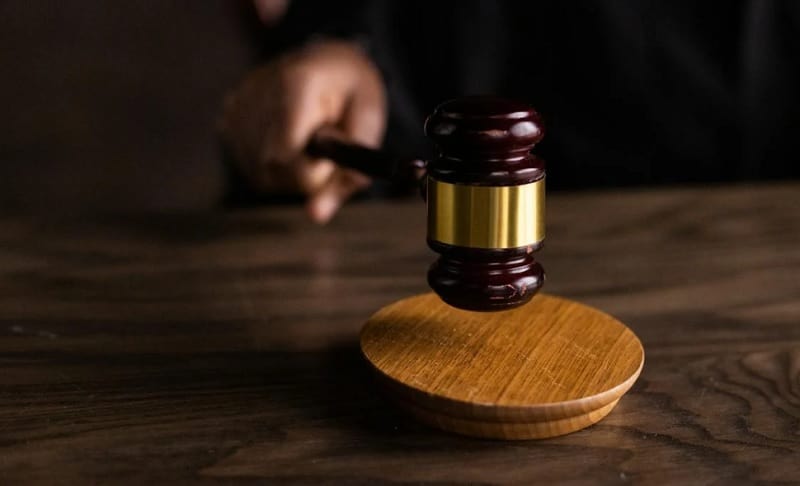In the complex and rapidly evolving landscape of financial fraud, a deep understanding of both the legal aspects and the intricate mechanisms of financial markets is crucial. Experienced legal teams employ diverse strategies to navigate these multifaceted cases, leveraging their knowledge of laws, regulations, and precedents in addition to their technical expertise in finance. A thorough investigation plays a crucial role, often aided by forensic accountants and other experts in the field. The primary objective is to expose fraudulent activities, hold the wrongdoers accountable, and prevent future incidents, thereby restoring investors’ trust and maintaining the integrity of financial markets. Knowing the strategies used by legal teams in finance fraud cases, and the specific areas in which they employ their expertise, can help individuals and organizations alike protect themselves from falling victim to financial fraud.
Investigative Strategies
The first step in building a strong case against financial fraud is conducting a thorough investigation. Legal teams often work closely with forensic accountants to gather evidence and analyze complex financial data. This includes reviewing financial statements, bank records, and transaction histories to identify any irregularities or discrepancies that may indicate fraudulent activity.
In addition to financial data, investigators also rely on information from witnesses, whistleblowers, and informants. This can include individuals with direct knowledge of the fraud or those who have observed suspicious behavior. Legal teams use various methods, such as interviews, surveillance, and background checks, to gather this information and corroborate evidence.
Legal Expertise
Once the evidence has been gathered and analyzed, legal teams use their expertise in finance laws and regulations to build a strong case against the perpetrators. This includes understanding various financial crimes statutes at both the state and federal levels, such as securities fraud, wire fraud, money laundering, and others.
Namely, the professionals from https://www.tsiglerlaw.com/ suggest that an experienced legal team will have a deep understanding of securities laws and regulations that govern the financial markets, such as the Securities Act of 1933 and the Securities Exchange Act of 1934. This expertise allows them to identify potential violations and build a case based on legal principles and precedents.
Legal teams also use their knowledge of finance to examine market trends and patterns that may point to fraudulent activity. This can include analyzing trading volume, stock prices, and insider trading data to identify any suspicious patterns or anomalies.
Preventive Measures

Experienced legal teams go beyond holding perpetrators accountable through legal action; they also strive to prevent future incidents of financial fraud. This involves implementing new regulations, conducting comprehensive training and education programs for investors and financial professionals, and collaborating with regulatory bodies to enhance oversight and enforcement.
Moreover, legal teams may pursue civil remedies, such as seeking restitution for fraud victims or filing lawsuits against other parties involved in the fraudulent activity. These measures not only help prevent future incidents but also play a crucial role in restoring trust and confidence in financial markets. If you are an investor or a financial professional, understanding the strategies and expertise used by legal teams in finance fraud cases is crucial. Having this knowledge can help you protect yourself and your assets, as well as contribute to the overall integrity of financial markets.
Role of Technology in Detecting Financial Fraud
In today’s digital age, technology plays a significant role in detecting and preventing financial fraud. Legal teams often incorporate data analytics and artificial intelligence (AI) tools into their investigative strategies. These technologies are capable of processing large volumes of data quickly and identifying suspicious patterns or anomalies that may indicate fraudulent activity.
For example, machine learning algorithms can analyze transaction data to detect unusual behavior or inconsistencies that humans might overlook. In addition, blockchain technology can increase transparency and traceability in financial transactions, making it more difficult for fraudsters to cover their tracks.
Legal teams also leverage secure communication platforms to protect sensitive information and enhance collaboration among team members. Therefore, remaining abreast of emerging technologies and understanding how to apply them can significantly enhance the effectiveness of legal strategies in financial fraud cases. In case of any detected or suspected fraudulent activity, it is crucial to consult with a legal team that has the necessary expertise and resources to investigate and pursue appropriate measures.
The Future of Legal Strategies in Financial Fraud Cases

As financial markets continue to evolve, so too will the strategies used by legal teams to combat financial fraud. Emerging technologies like artificial intelligence, machine learning, and blockchain are already transforming the landscape of financial fraud detection and prevention. Legal teams of the future may increasingly rely on these technologies to analyze vast amounts of data, identify patterns of fraudulent activity, and build robust cases against perpetrators.
Furthermore, advancements in secure communication and collaboration tools will enhance the efficiency and effectiveness of investigations. Alongside these technological developments, ongoing education and training in new laws and regulations will remain paramount.
Hence, it is imperative for individuals and organizations to stay well-informed regarding the latest strategies and trends in the field. This knowledge empowers them to protect themselves against financial fraud and uphold trust in the financial markets. By familiarizing yourself with the strategies and expertise employed by legal teams in financial fraud cases, you can proactively safeguard your assets and contribute to a more secure financial landscape for all stakeholders.
Role of Regulatory Bodies in Financial Fraud Prevention
Regulatory bodies play a pivotal role in combating financial fraud, acting as an essential line of defense. They enforce laws and regulations, monitor financial institutions, and initiate investigations into suspicious activities. For instance, in the United States, the Securities and Exchange Commission (SEC), the Financial Industry Regulatory Authority (FINRA), and the Commodity Futures Trading Commission (CFTC) are among the key agencies that oversee the financial markets. They ensure compliance with regulations, and when violations occur, these bodies can impose penalties, revoke licenses, or even bring criminal charges against perpetrators.
Moreover, they also promote transparency by requiring periodic reporting from financial institutions and public companies, creating an environment that discourages fraudulent behavior. Cooperation and collaboration between legal teams and regulatory bodies form a robust system that holds fraudsters accountable and maintains the integrity of financial markets.
The constant evolution of financial markets and the proliferation of sophisticated fraudulent schemes necessitate a robust, multi-faceted approach to combat financial fraud. Legal teams play a crucial role in this fight, leveraging their deep understanding of financial laws and regulations, alongside technological advancements, to expose fraudulent activity, hold wrongdoers to account, and prevent future incidences.
Their expertise, combined with the enforcement powers of regulatory bodies, ensures the integrity of financial markets and fosters investor confidence. Given this, staying informed about the latest legal and technological strategies in financial fraud prevention is paramount for individuals and organizations alike. By doing so, they can not only protect their assets but also contribute meaningfully to a transparent, trustworthy financial landscape.














Leave a Reply